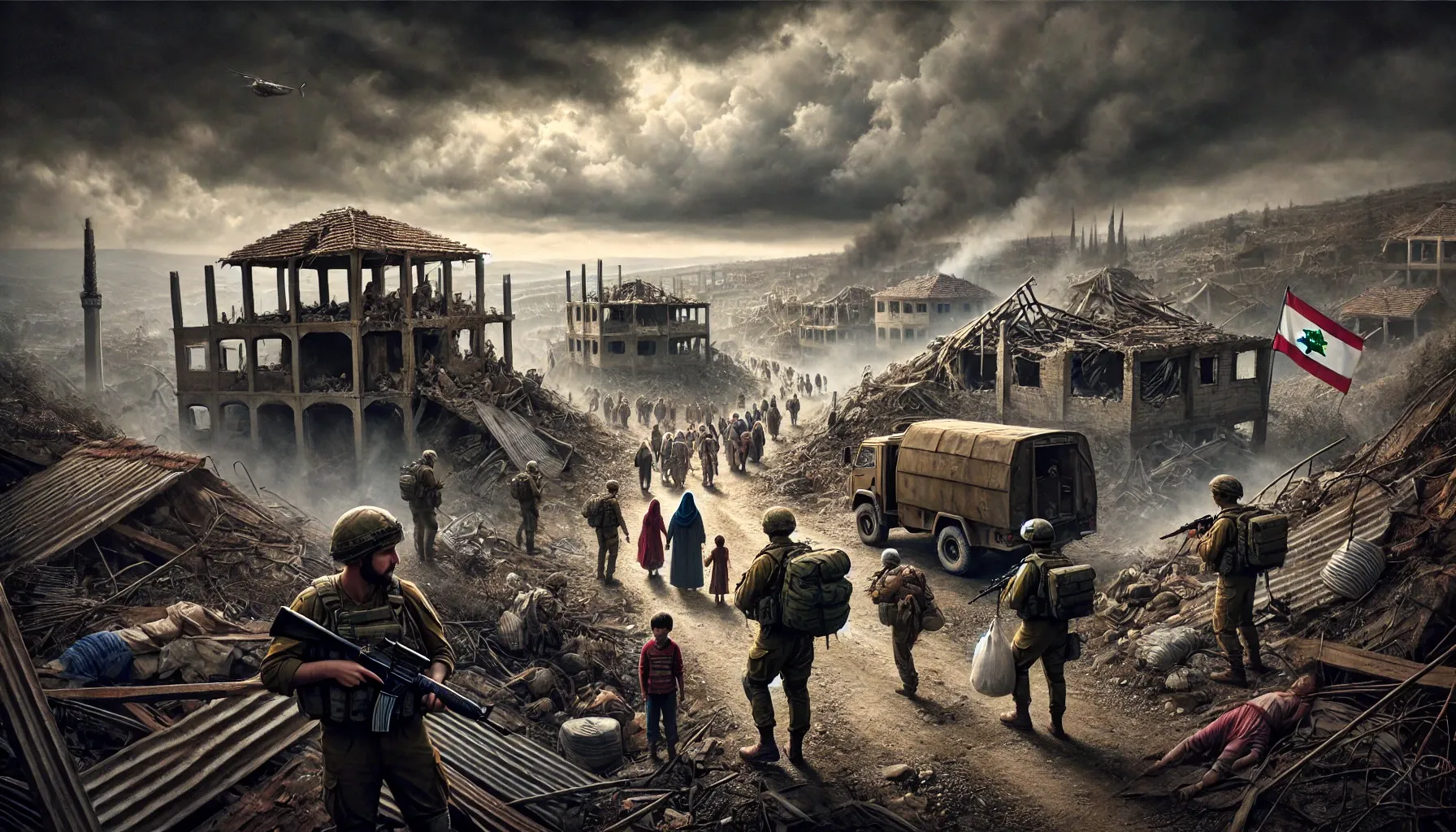A tenuous ceasefire between Israel and Hezbollah holds as thousands of displaced Lebanese return to shattered homes. With strict restrictions and heavy casualties, international pressure mounts on both sides.

A fragile ceasefire brokered by the United States between Israel and Hezbollah is holding amidst tensions, restrictions, and widespread displacement in southern Lebanon. This truce, which began on Wednesday morning, aims to end months of relentless cross-border violence that has left over 3,823 dead and 15,859 injured in Lebanon, according to Lebanese health officials. While thousands of displaced residents cautiously return to their devastated villages, Israeli Prime Minister Benjamin Netanyahu has drawn sharp criticism for maintaining strict travel bans and military presence in the conflict-ridden zone.
With the Lebanese army tasked to oversee the ceasefire's implementation and reclaim southern Lebanon from Israeli forces within 60 days, the situation remains precarious. Netanyahu’s hardline approach and Hezbollah's declaration of "victory" further complicate the fragile peace, fueling uncertainties over the truce's durability.
The Ceasefire Agreement
- Brokered Terms: The ceasefire, mediated by the United States, allows for a gradual withdrawal of both Israeli forces and Hezbollah fighters from southern Lebanon over 60 days.
- Israeli Restrictions:
- Israeli military spokesperson Avichay Adraee announced stringent travel bans south of the Litani River from 5 PM to 7 AM daily, barring displaced residents from returning to areas marked unsafe.
- Netanyahu doubled down, instructing the military to prevent re-entry into Lebanese villages near the Israel-Lebanon border, citing ongoing military operations.
- Lebanese Army’s Role:
- Lebanon’s military, tasked with ensuring the ceasefire’s enforcement, began deploying additional troops south of the Litani River on Wednesday.
Netanyahu’s Controversial Stance
- Defensive Measures: Netanyahu, while confirming the ceasefire to U.S. President Joe Biden, emphasized that Israel would maintain its freedom to act in enforcing the agreement.
- His office stated: “The Israeli military has clear instructions to strike any Hezbollah operatives approaching our troops, border areas, or marked villages.”
- Military Posturing: Israeli Chief of Staff Herzi Halevi reinforced this sentiment, warning: “We are preparing for the possibility that this [ceasefire] approach won’t succeed.”
- Criticism and Concerns: Netanyahu’s rigid measures have sparked international criticism, with displaced Lebanese civilians bearing the brunt of his policies.
Hezbollah Declares "Victory"
- Defiant Statement:
- Hezbollah lauded its actions as a "victory" in a public statement:
“Victory from God almighty was the ally of the righteous cause.” - The group added that its fighters remain in a state of readiness against future Israeli actions.
- Hezbollah lauded its actions as a "victory" in a public statement:
- Origins of Escalation:
- The conflict reignited on October 8, 2023, when Hezbollah launched rockets into Israel in solidarity with Palestinians in Gaza.
- Escalations peaked in September, with Israel’s intensified bombardments, culminating in a ground offensive in October.
Casualties and Humanitarian Crisis
- Human Toll in Lebanon:
- 3,823 fatalities and 15,859 injuries have been reported in Lebanon since October 2023.
- Thousands remain displaced, with many returning to shattered homes amidst uncertain safety conditions.
- Infrastructure Damage:
- Extensive damage to southern Lebanon's infrastructure has left many villages uninhabitable, deepening the displacement crisis.
International Reactions
- United States and France:
- President Joe Biden and French President Emmanuel Macron issued a joint statement emphasizing their commitment to ensuring the ceasefire is "fully implemented and enforced."
- Lebanon’s Leadership:
- Lebanon’s caretaker Prime Minister Najib Mikati described the violence as the “most cruel phase in Lebanese history,” urging national unity during this critical recovery period.
Comparisons and Precarious Peace
The current truce bears striking similarities to past ceasefires between Israel and Hezbollah—temporary relief overshadowed by enduring tensions. Despite the involvement of international mediators like the U.S. and France, the deep mistrust between the parties and Netanyahu’s hardline policies threaten to unravel the agreement. As Hezbollah touts its victory and Israel positions itself for potential violations, the ceasefire's long-term viability remains uncertain.
Source: Al Jazeera





